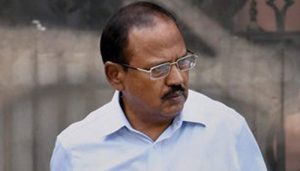 NewDelhi: As Doklam stand-off escalated between India and China, national security adviser (NSA) A K Doval and his team quietly met their Chinese counterpart in an attempt to defuse the situation.
NewDelhi: As Doklam stand-off escalated between India and China, national security adviser (NSA) A K Doval and his team quietly met their Chinese counterpart in an attempt to defuse the situation.
As diplomatic talks progressed, it was clear New Delhi was negotiating from a position of strength with Army Chief Bipin Rawat “extremely confident of ensuring maximum damage.”
“Is it your territory?” China’s state councillor Yang Jiechi asked Doval, referring to the presence of Indian Army at Doklam as the two first met on July 27 in Beijing,
Unfazed, Doval responded back, “Does every disputed territory become China’s by default?”
The NSA asserted that by building road inside Bhutanese territory, Chinese had changed the status quo at the tri-junction of Bhutan, India and China. He further added a treaty obliges India to look after the Bhutan’s security concerns.
Beijing had even offered 500 sq kms of Bhutan’s land in the north in exchange for Doklam.
Foreign Secretary S Jaishankar, Indian ambassador to China Vijay Gokhale, Army chief Rawat, Director General Military Operations Lt Gen Anil Bhatt were a part of the entourage that negotiated the terms of disengagement with China.
Despite the talks being approved by Prime Minister Narendra Modi and Chinese President Xi Jinping, there was complete political silence. The duo met in Hamburg during the G20 meeting, both agreeing the issue should not escalate.
PM Modi is said to have asked Doval and his team to look for quick resolution of the stand-off, as the two nations had a lot to gain from cooperation.
At the same time, New Delhi kept calm, refusing to take the China’s bait.
On Monday, August 28, India and China decided to withdraw troops from the Sikkim border, ending the 75-day Doklam stand-off.
Bureau Report
Leave a Reply